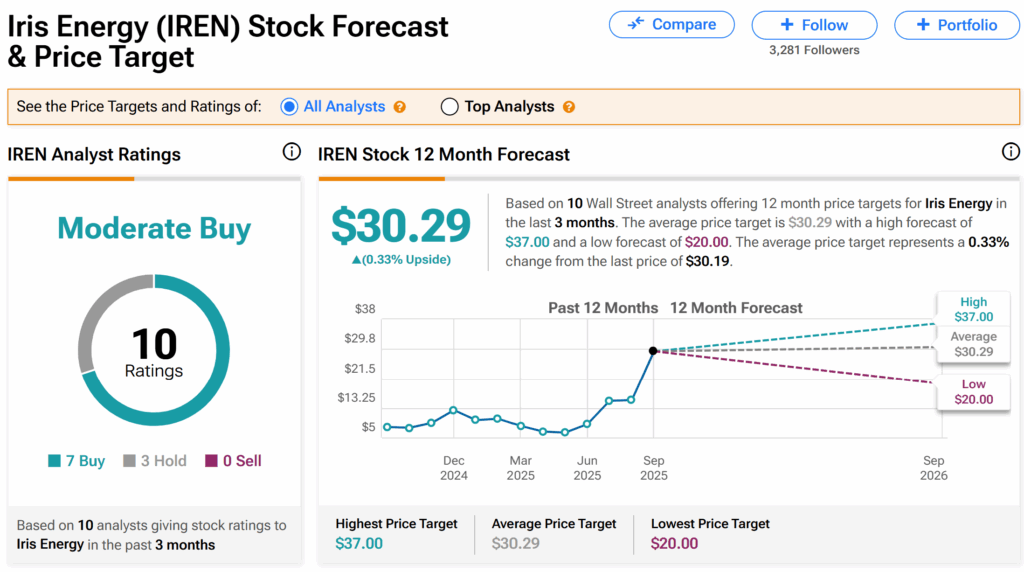Business
Meet the companies using AI to reinvent the energy business

The rise of artificial intelligence has created an energy paradox. While tech leaders behind AI tools like ChatGPT say large language models can solve some of the world’s biggest problems, the infrastructure powering the technology may be creating another problem as a result of the environmental impact. AI data centers can consume 20 to 30 times as much energy as their CPU-based predecessors, according to Mark Chung, CEO of energy efficiency monitoring company Verdigris. Some experts predict AI will account for more than 10% of U.S. electricity consumption within five years, fueling fears that unchecked AI compute demand could exponentially accelerate climate damage.
But the convergence of AI and energy is also forcing a rethink of the industry’s traditional practices, creating opportunities to mitigate the environmental impact by making the grid, and the data centers it feeds, operate more cleanly and more efficiently than was possible before.
“One of the biggest challenges with providing energy to a data center is optimizing the flow of that energy, and that is a problem that AI can be extremely helpful in solving,” says Katie Durham, a partner at Climate Capital.
One of the largest players using AI to tackle this efficiency problem is Kraken Technologies. Its AI-powered operating system serves over 70 million customer accounts across 40 utilities worldwide. It connects more than 500,000 consumer devices—from EV chargers to home batteries—and controls over five gigawatts of flexible energy supply, offsetting 14 million tons of CO₂ in 2024 alone, according to figures shared with Fortune.
Devrim Celal, Kraken’s chief marketing and flexibility officer, said the company’s success hinges on finding efficiencies in renewable energy demand. “When you transition to renewable energy, you get a completely new set of problems,” he says, explaining the company’s role in analyzing the demand for renewables to create a system that stores or deploys energy based on user-specific consumption patterns.
He also notes that the company uses machine learning to cluster consumers based on their energy consumption patterns and efficiently distribute renewable power with 90% accuracy. This means that if a customer typically charges their electric vehicle to 100% from 9 p.m. to 7 a.m. every day, the energy will be deployed at this time and reserved when the vehicle is away from home. “That’s incredibly powerful when balancing the grid,” he says.
Miami-based Exowatt is building solar energy systems designed to power AI data centers around the clock. By providing a means to store and dispatch solar power at any time of day, the company helps utilities deal with the inherent intermittency of solar without resorting to carbon-emitting energy sources, says Exowatt CEO and cofounder Hannan Happi. “We’re really in a mad rush to bring the product to market and scale it as fast as possible,” he notes. “Because if we don’t, the only energy and power solution data center customers have available to them is just putting diesel and natural gas on the grid, which is really, really affecting the communities around where these data centers are being built.”
Exowatt is also leaning heavily on AI internally. It uses LLMs to power a “digital twin” system that simulates performance in real time and enables proactive maintenance. The company is replacing traditional SaaS tools with custom-built AI software, tailored to its supply-chain and manufacturing needs.
Halcyon, a startup with $10.8 million in seed funding, is using AI to help energy professionals in a different way. The firm has created large language models that ingest regulatory filings from agencies like the Federal Energy Regulatory Commission and the Department of Energy and makes them searchable and structured—saving energy developers time and expanding access to up-to-date data on battery incentives, grid constraints, and transmission plans.
“We’re using LLMs primarily to read,” says Sam Steyer, head of data science at Halcyon. “We think of the regulatory analyst at an energy company who, in the past, would have to search for the right 1,000 page PDF and then use Control F and maybe spend a day finding the right piece of data … We’re trying to make that process as efficient and fast as possible and empower that person to do the same work at a much bigger scale.”
A part of Halcyon’s mission is to ensure that AI’s expanding appetite for electricity also accelerates the clean energy transition. The company is building trackers for special data center electricity rates and tools that help renewable developers site projects faster.
“AI and energy are really symbiotic,” says Steyer. “AI is driving growth in electricity demand in a big way … It’s going to be completely essential to scaling the electricity system.”
Business
IREN Stock (IREN) Keeps Climbing as AI Cloud Business Grows, Nvidia GPUs Incoming

IREN Limited’s (IREN) shares have continued to extend their recent rally. The data center infrastructure provider’s stock gained over 15% at the close of trading on Tuesday to emerge as the fifth-biggest gainer of the day. Since the start of the year, the shares have also soared by over 200%.
Elevate Your Investing Strategy:
- Take advantage of TipRanks Premium at 50% off! Unlock powerful investing tools, advanced data, and expert analyst insights to help you invest with confidence.
The boost comes a day after Daniel Roberts, the company’s co-founder and co-CEO, noted that the “demand for our AI Cloud is accelerating.” Roberts also said the firm is preparing to receive over 9,000 Blackwell graphics processing units (GPUs) from chipmaker Nvidia (NVDA) over the coming months to expand its artificial intelligence-powered cloud business.
IREN was recently admitted into the Nvidia Preferred Partner Program, giving the company priority access to the chip designer’s latest GPUs. As part of its expansion, the Sydney-based firm plans to install the incoming GPUs at its site in Prince George, British Columbia, Canada, where it is constructing a new facility to install Nvidia’s GB300 NVL72 systems. These systems are Nvidia’s high-end, liquid-cooled AI servers built around the Blackwell GB300 GPU.
IREN Misses Wall Street Estimates
IREN has continued to rally despite missing Wall Street’s revenue projection for its most recent quarter. In its fiscal fourth-quarter 2025 results released in late August, the company, which also mines Bitcoin, generated $187.3 million in revenue, below the estimated $188.91 million.
However, for a company that frequently reports a net loss, IREN reported a net income of $176.9 million during the recent quarter. This is even as the company looks to expand its AI Cloud server business to 10,900 Nvidia GPUs, with over 80% of those from the chipmaker’s Blackwell models.
Furthermore, IREN mined fewer Bitcoins in August, with the number dropping by over 8% from 728 BTC in July to 668 BTC in August. However, the company continues to maintain a positive outlook.
“Following record fiscal year and quarterly earnings, we delivered another month of solid performance, generating $53 million of hardware profit in August despite seasonal curtailment and electricity prices,” said co-CEO Daniel Roberts.
IREN’s brighter prospects for its AI cloud business coincide with the time investors are looking to Oracle’s (ORCL) cloud infrastructure revenue as a key driver for future growth.
Is IREN a Good Stock to Buy?
Analysts on Wall Street are generally cautious about IREN’s shares. On TipRanks, the stock has a Moderate Buy consensus recommendation based on seven Buy and three Hold ratings by 10 Wall Street analysts over the last three months.
The average IREN price target is $30.29, which indicates a potential marginal growth of 0.33% from current levels.

Business
Can Artificial Intelligence (AI) Help Turn Opendoor’s Business Around?

Key Points
-
Opendoor recently appointed Shrisha Radhakrishna as its new interim leader.
-
Radhakrishna believes artificial intelligence can help the company in multiple areas of its operations, including pricing and in-home assessments.
-
The company has routinely incurred losses and it’s carrying more than $2 billion in debt on its books.
-
10 stocks we like better than Opendoor Technologies ›
Artificial intelligence (AI) has been transforming businesses across the globe and across all sectors of the economy. While it may not necessarily fix a broken business, it can help add efficiency, unlock new growth opportunities, and drive down costs.
Those are all things that Opendoor Technologies (NASDAQ: OPEN) could benefit from. Many investors and analysts see the iBuying company as nothing more than the latest meme stock, benefiting from a flurry of hype from retail investors.
Where to invest $1,000 right now? Our analyst team just revealed what they believe are the 10 best stocks to buy right now. Continue »
Management, however, hopes to solidify its operations and do more with less, due to AI. Is this a great idea that could make Opendoor a better buy, or is this simply too risky of a stock to hold?
Image source: Getty Images.
Can AI fix the company’s biggest struggles?
Opendoor’s new president and interim leader, Shrisha Radhakrishna, who took over last month after Carrie Wheeler stepped down, is eyeing AI as a way to improve the company’s operations. Radhakrishna sees many ways that AI can be a key part of the company’s future growth, helping the business with marketing, pricing, and in-home assessments.
Turning to AI can be a way to improve efficiency, but it’ll take time and money to do so. And even then, it’s questionable how much generative AI can do for Opendoor’s business. Consider that the company’s gross margin is typically in just single digits. The iBuying business involves flipping houses and if there’s not enough of a spread there to make enough of a margin, it’s going to be incredibly difficult for the business to cover its other operating expenses and stay out of the red.
AI may help with pricing, but unless it results in significant margin expansion, it may not necessarily lead to a big payoff for the business and its shareholders.
Many AI projects are falling short of expectations
Excitement around AI has captivated investors, but that doesn’t mean that simply throwing money at AI is going to solve problems. In fact, it may create new ones as Opendoor spends excessively without having much to show for it.
According to a recent report from the Massachusetts Institute of Technology, a staggering 95% of companies haven’t been generating any meaningful revenue or payoff from their investments into AI. While the hyperscalers and big tech companies with massive budgets have undoubtedly grown their businesses due to AI, the study underscores the importance of keeping expectations in check.
As tempting as it may be to assume that AI will improve a company’s operations, that’s by no means a sure thing. And that can be particularly concerning for a business such as Opendoor, which has routinely posted losses and which already has more than $2 billion in debt on its books. Last quarter (which ended June 30), its interest expense totaled $36 million — nearly 3 times the size of its operating loss of $13 million.
Investing into AI likely won’t make Opendoor a better stock
Opendoor’s business needs a lot of work before it can have a realistic path to profitability and be a good investment option. There’s a ton of risk for investors to take on and although the stock has surged more than 300% this year (as of Monday), that doesn’t mean the rally is sustainable or that it will continue.
The volatility that comes with Opendoor’s stock makes it an unsuitable option for the vast majority of investors to consider for their portfolios. With challenging market conditions, poor financials, and many question marks surrounding the long-term viability of Opendoor’s business, this is a stock I’d steer clear of for the foreseeable future. At the very least, you may want to wait until the company actually shows some tangible improvement and payoff from its efforts and AI investments. Otherwise, you could be taking on significant risk. This is a stock that could have a long way to fall given its sharp rally this year and the volatility that comes with it.
Should you invest $1,000 in Opendoor Technologies right now?
Before you buy stock in Opendoor Technologies, consider this:
The Motley Fool Stock Advisor analyst team just identified what they believe are the 10 best stocks for investors to buy now… and Opendoor Technologies wasn’t one of them. The 10 stocks that made the cut could produce monster returns in the coming years.
Consider when Netflix made this list on December 17, 2004… if you invested $1,000 at the time of our recommendation, you’d have $671,288!* Or when Nvidia made this list on April 15, 2005… if you invested $1,000 at the time of our recommendation, you’d have $1,031,659!*
Now, it’s worth noting Stock Advisor’s total average return is 1,056% — a market-crushing outperformance compared to 185% for the S&P 500. Don’t miss out on the latest top 10 list, available when you join Stock Advisor.
See the 10 stocks »
*Stock Advisor returns as of September 8, 2025
David Jagielski has no position in any of the stocks mentioned. The Motley Fool has no position in any of the stocks mentioned. The Motley Fool has a disclosure policy.
Disclaimer: For information purposes only. Past performance is not indicative of future results.
Business
Business Adaptation Strategies for 2025

As artificial intelligence reshapes the way consumers discover nearby businesses, industry experts are warning that traditional local search strategies may soon become obsolete. In a recent webinar hosted by Search Engine Journal, panelists delved into how AI is accelerating changes in search engine results pages, particularly for location-based queries. They highlighted that AI overviews, which provide synthesized summaries at the top of results, are increasingly pulling data from maps, reviews, and real-time business information, often bypassing the need for users to click through to websites. This shift is prompting marketers to rethink optimization tactics, focusing less on keyword stuffing and more on structured data that AI can easily interpret.
For multi-location brands, the stakes are even higher. The webinar revealed data from a custom study showing that certain queries trigger AI overviews more frequently than traditional map packs, with visibility varying by industry. For instance, retail and hospitality sectors see AI summaries dominating 60% of “near me” searches, according to insights shared. Businesses that fail to adapt risk losing out to competitors who leverage AI-friendly content, such as high-quality images and verified business profiles on platforms like Google My Business.
Navigating the Rise of AI-Driven Local Discovery in 2025: As we approach 2025, the integration of generative AI into search engines is not just enhancing user experiences but fundamentally altering how local businesses compete for attention, with innovations like voice-activated queries and predictive recommendations set to dominate.
This evolution is echoed in broader industry reports. A post on X from digital marketing firm Straight North emphasized that AI is making local SEO “futuristic,” incorporating elements like Perplexity’s local search capabilities and even AI-initiated calls to businesses, drawing from recent updates by Google. Similarly, Business Tech Weekly outlined strategies for adapting to these changes, stressing the importance of claiming listings across multiple maps providers, including Apple and Bing, to ensure visibility in AI aggregated results.
The financial implications are significant. According to a forecast from Coherent Market Insights, the AI search engines market is projected to reach $108.88 billion by 2032, growing at a 14% compound annual rate from 2025, driven largely by local search innovations. This growth is fueled by advancements in natural language processing, allowing AI to understand contextual queries like “best coffee shop open now” with unprecedented accuracy.
Strategic Shifts for Multi-Generational Customer Engagement: With AI personalizing search results based on user demographics, businesses must now tailor their online presence to appeal across age groups, from Gen Z’s preference for visual and social integrations to older users’ reliance on straightforward map data.
Recent news on X from Search Engine Journal itself underscores the need for data-driven tactics, noting that some brands excel in map packs while others shine in AI overviews, based on query types. Their analysis suggests optimizing for both by enriching profiles with photos, hours, and real-time updates. Meanwhile, a report from Google Cloud Blog discusses multimodal AI trends, where text, images, and voice combine to enhance local search, potentially transforming public sector applications like emergency services routing.
Innovation isn’t limited to tech giants. Startups are entering the fray, with posts on X from users like Matt Diggity highlighting entity optimization techniques that help dominate AI platforms. By building comprehensive entity profiles—detailing business attributes in a way AI models can parse—companies can improve their chances of appearing in synthesized responses.
Ethical Considerations and Future Challenges in AI Local Search: As AI becomes more autonomous in curating local results, questions arise about bias in recommendations and the need for transparent data practices, challenging businesses to balance innovation with accountability in 2025.
Ethical challenges are gaining attention, as noted in an analysis by Gupta Deepak, which covers advancements in ethical AI for deep search tools. The piece warns of potential disparities in visibility for small businesses versus large chains if AI favors well-established entities. On X, discussions from Artificial Analysis point to trends like AI agents that automate local discovery, raising concerns about data privacy in real-time tracking.
Looking ahead, experts predict a hybrid model where traditional search coexists with AI enhancements. A recent X post from What People Want observed users shifting to conversational AI for complex local queries while still relying on Google for maps, indicating a gradual transition. To stay competitive, insiders recommend investing in AI tools for monitoring visibility, as suggested in Semrush’s study, which forecasts AI search visitors surpassing traditional ones by 2028.
Investment Opportunities and Market Projections: The burgeoning AI local search sector is attracting significant investments, with projections indicating explosive growth that savvy businesses can capitalize on through early adoption of emerging technologies.
Market dynamics are shifting rapidly, per AlixPartners, which describes a paradigm shift in the global search market for 2025, emphasizing diversification beyond Google. In India, EY’s report on generative AI trends highlights local innovations, such as AI-integrated apps for hyper-local services, which could influence global strategies.
For industry insiders, the key takeaway is proactive adaptation. As one X post from ZC25 noted, generative engine optimization represents an $80 billion opportunity, moving away from outdated SEO practices toward AI-centric approaches. By 2025, businesses that integrate these innovations will likely lead in local visibility, while laggards face diminished relevance in an AI-dominated search ecosystem.
-

 Business2 weeks ago
Business2 weeks agoThe Guardian view on Trump and the Fed: independence is no substitute for accountability | Editorial
-
Tools & Platforms4 weeks ago
Building Trust in Military AI Starts with Opening the Black Box – War on the Rocks
-

 Ethics & Policy1 month ago
Ethics & Policy1 month agoSDAIA Supports Saudi Arabia’s Leadership in Shaping Global AI Ethics, Policy, and Research – وكالة الأنباء السعودية
-

 Events & Conferences4 months ago
Events & Conferences4 months agoJourney to 1000 models: Scaling Instagram’s recommendation system
-

 Jobs & Careers2 months ago
Jobs & Careers2 months agoMumbai-based Perplexity Alternative Has 60k+ Users Without Funding
-

 Education2 months ago
Education2 months agoVEX Robotics launches AI-powered classroom robotics system
-

 Podcasts & Talks2 months ago
Podcasts & Talks2 months agoHappy 4th of July! 🎆 Made with Veo 3 in Gemini
-

 Education2 months ago
Education2 months agoMacron says UK and France have duty to tackle illegal migration ‘with humanity, solidarity and firmness’ – UK politics live | Politics
-

 Funding & Business2 months ago
Funding & Business2 months agoKayak and Expedia race to build AI travel agents that turn social posts into itineraries
-

 Podcasts & Talks2 months ago
Podcasts & Talks2 months agoOpenAI 🤝 @teamganassi





















